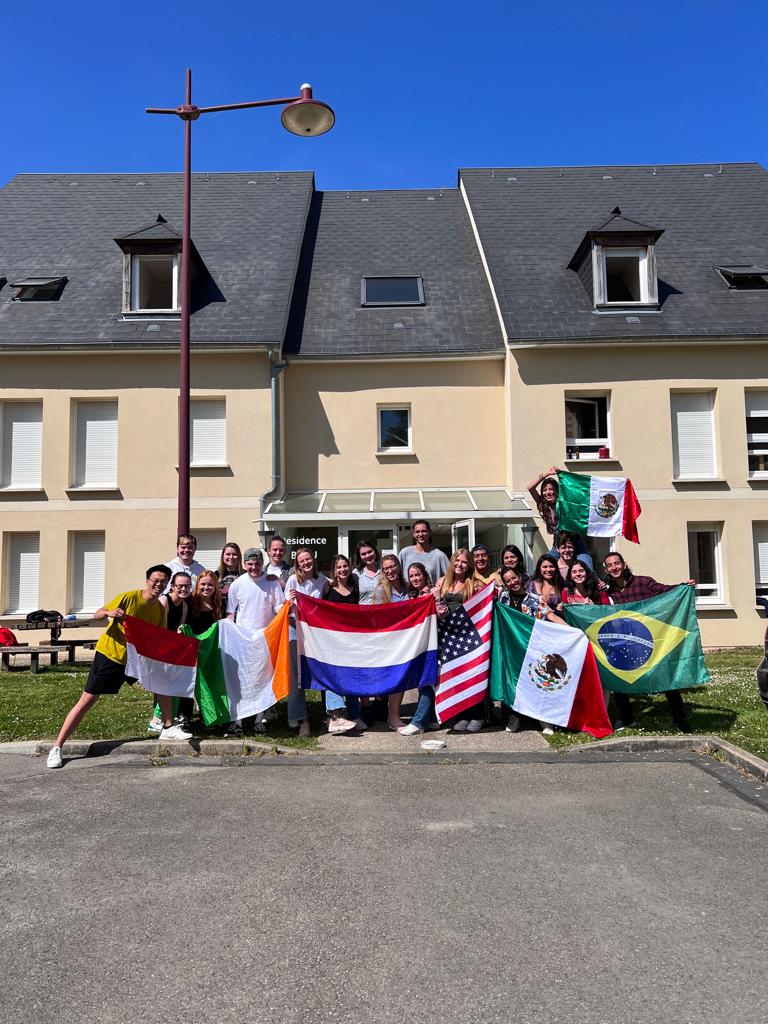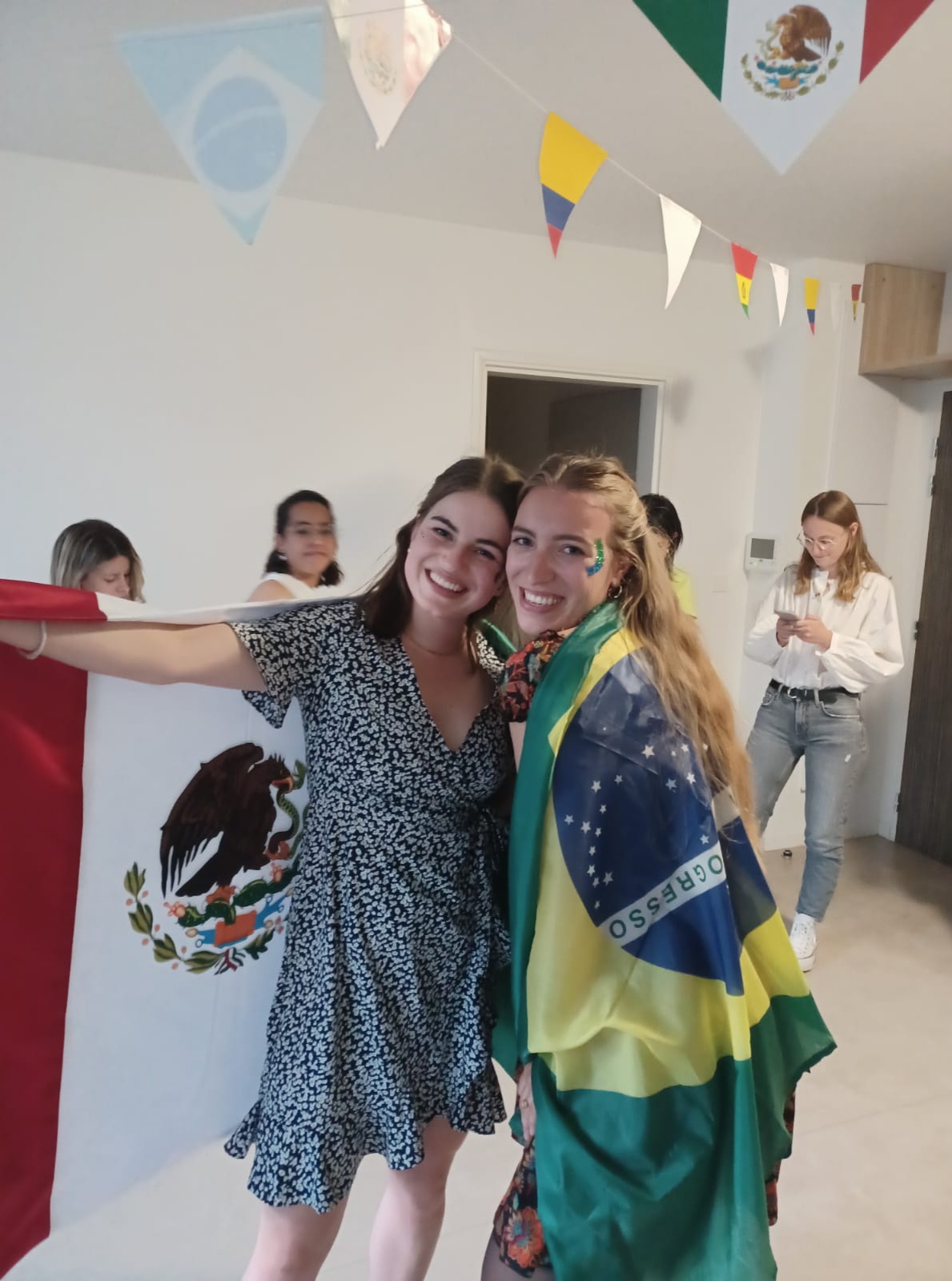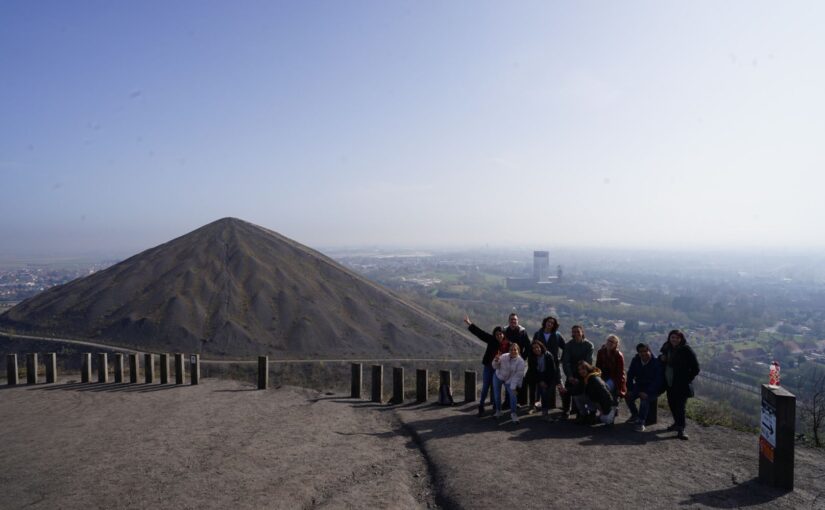Field of study in Wageningen: Water Management
Study period exchange: 13/01/2023 – 17/05/2023
Country (exchange): Frankrijk
City (exchange): Beauvais
University (exchange): UniLaSalle Beauvais
Faculty (exchange): Agro-ecology, Hydrogeochemistry and Environments & resources
2. Motivation for exchange
Why did you choose to go on study exchange?
Before going on my exchange I had started my studies in Wageningen during the first year of Covid-19. Even though I had finished all of my courses in that period, and was supposed to get started on my MSc thesis, I didn’t feel like I actually was already half way during my studies. I felt like I needed a change of scenery and was looking for something extra in addition to my studies. I decided to take some extra time for my Masters and wanted to fill that time with an exchange. I thought it would be an extra to my resumé and could help my for my personal growth too.
What is the reason you chose for this country/university?
As I made the decision to go on exchange quite late, I went in open mindedly and decided to just take a look at the options and see what would be possible. There were not many available, but amongst the options was this one in France. I found that the courses were really fitting to me and it included a fully ready and composted program which made arranging things less stressful and easier to organize.

3. Accessibility to reach destination
Do you have any tips to reach your exchange destination?
I would recommend asking friends or family to drive you there. That way you can take more belongings, because trust me, packing for five months can be quite the challenge, and the journey that way is much less stressful. You can get there with the car in about 5 hours. The other option is to train (or bus) to Paris, then the train to Beauvais and then the bus to campus, but it would take you a whole day and public transport in and around in Beauvais can be a bit of a pain.
4. University and studying
Could you provide some general information about the followed courses?
How is the study formalized?
You have in person classes almost every day of the week. During these classes you will have either lectures or practicals. Almost every week you have at least one practical (either in a lab or computer lab) or you go on a small fieldtrip. At the end of the week you will have an examination on Friday or a deadline on Sunday. The examinations are both presentations or exams. Luckily most of the preparations can be done during planned hours and you do not have a lot of extra study time next to that.

What is the culture of the university?
The teachers are highly approachable. They are very friendly and because you are in small classes you can interact very easily. Engagement with local students is a bit different. French students have told me that most of them are anxious to make mistakes with their English so what I found is that most are hesitant to come to you. However some of them are more than willing to try and can be very eager to improve their English with you as well.
What does the university offer the student additionally?
There are a lot of facilities on campus. Besides the housing and the lecture halls, there is an library where a lot of students come to study. There is a farm and a laboratory. The campus provides laundry facility, a gym (both indoor and outdoor), there is a cafeteria, a bar, lots of sports committees, there is a big (rugby) field in front of the housing, there is a bbq outdoor area and they organize lots of activities throughout (arts classes, cooking workshops, big parties every Thursday and every other Friday). We usually used to hang out on the rugby field all the time when the sun was out or in front of our building as there were many picnic tables.

5. Housing-travelling-living
What are the possibilities for housing?
They provide a room for you on campus in the international housing building – Bois J. You can sign a form indicating your preferences, but it is not guaranteed. The rent varies between 285 (small room shared) to 450 something (private room). Highly recommend the in between room (rent is 330), biggest room, it is shared but there is plenty of privacy and space.
What is the culture of the country like?
Sometimes, on campus some people were quite judgmental. Especially at the big parties the vibes were sometimes a bit unfriendly. However a lot of them were also super friendly and the ones that were open to internationals acted very cordially.
Could you give a general price indication of the place of residence compared to living in Wageningen?
Groceries were more expensive. I recon you will spend about 60eu every week. If you like to go to all the events, you would also need to include the prices for drinks which are another 20eu a week. The residence is about 320 generally a month. I think in many ways it is comparable to Wageningen.
Could you give some information about public transport infrastructure?
You walk to the university, it is a 5 min walk from the apartment to the class. You go by bus to the city centre. It is only one euro a trip, but in cash, so make sure you always have coins on you. The busses also go on very specific times and don’t go as much as we are used to in Wageningen. So make sure to prepare trips to the supermarket. Taxi is super expensive. I recommend taking the bus to Amiens for a day trip. These are also just one euro, the train to Paris is about 15 euros.

6. Free time
What are must-sees in the area?
Travelling by bus and train is really easy, but busses go on very specific times. If you have a car I recommend bringing it. Visit Paris of course, but also Amiens is super nice, Rouen, or the castles of Chantilly. A day trip to Versailles (bit more difficult with trains but worth it).
What does not appear in the travel guide, but is worth a visit?
The Canada lake next to campus, or going to the coast (le Havre).
Do you have general tips and tricks about leisure time?
There are many activities on campus, try to indulge yourself completely into campus life and you will have many parties, dinners and fun trips. Try to interact as much as possible with the French who are studying there and you will find some really good friends.
7. Challenges & best moment abroad
What was a challenge you have experienced?
Some of the people on campus showed to be quite xenophobic, especially to some of my international friends. On another note, there is also a lot of gossip amongst the internationals.
What was your best memory abroad?
That is way too difficult to say! There are so many good memories. I think in general the people I’ve met are most dear to me. We made a lot of trips together, so I would say those were the most special to me.

8. Contact details
Would you like to ask Sanne more questions about her exchange?
Send her a mail: sanne.valentijn@wur.nl


